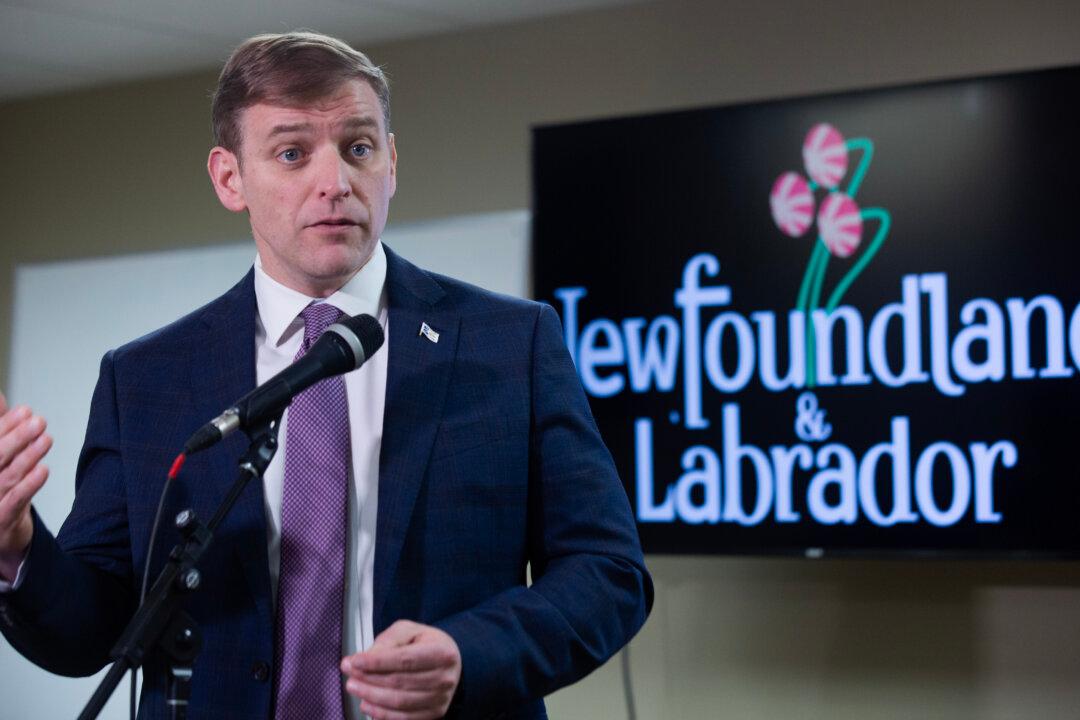Newfoundland and Labrador is launching a constitutional challenge against the federal equalization program, saying it places the province at a disadvantage.
The program’s goal is to “ensure provincial governments have sufficient revenues to provide comparable levels of public services at comparable levels of taxation,” the province’s Liberal government said in a statement on May 30.





